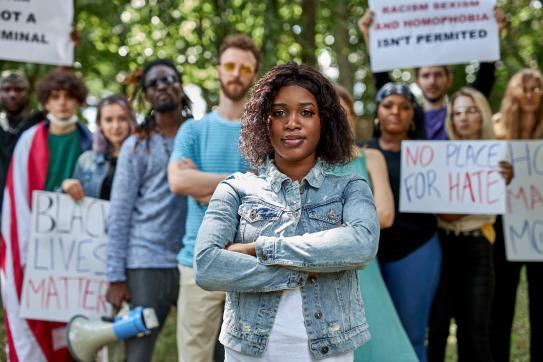Last fall, Ye, the rapper turned fashion designer formerly known as Kanye West, defiantly declared that Adidas could not drop him as a brand partner for making antisemitic statements.
Adidas eventually proved him wrong, ending a lucrative eight-year relationship under pressure from customers and social media commenters. As a result, its stock dropped, with estimated sale losses of $246 million in the fourth quarter of 2022. Yet, the firm calculated that protecting its brand and preserving the goodwill of customers was worth more.
Firms increasingly face this complicated calculus as investors, clients, customers, and community members judge companies on their environmental, social justice, and corporate governance (ESG) performance as well as their products and profitability. The pressure cuts the other way, too: Other stakeholders demand that companies stick to business and focus on the bottom line, and will boycott “woke” enterprises, as Newsweek reported last August. In a recent New York Times Dealbook roundtable discussion, CEOs from various corporate sectors agreed that figuring out when and how to speak out on such issues is one of the greatest challenges they face.
Columbia Business School Professor Vanessa Burbano is gathering important evidence that can guide a firm’s decision to speak out — or stay silent. Using field experiments, she is studying the strategic implications of corporations' actions on ESG issues. “I have become really interested in how employees and stakeholders respond to companies taking stances on social-political issues that are polarizing in nature,” says Burbano, the Sidney Taurel Associate Professor of Business.
In an award-winning paper cited in The New York Times, the Financial Times, Forbes, Newsweek, and other business publications, she found that when a company takes a public stance on a social-political or controversial issue, employees who disagree with the position are demotivated: They do less extra work and do lower quality work. “Interestingly, and partly to my surprise, the reverse did not turn out to be true: People who agree with the company’s stance do not work more or do better quality work,” she says.
One possible explanation is found in research that shows people pay more attention and react more strongly to information that is surprising or negative. Thus, employees who thought that corporate values aligned with their own but find themselves in disagreement change their behavior; those who agree do not.
In another paper, “The Demotivating Effects of Communicating a Social-Political Stance: Field Experimental Evidence from an Online Labor Market Platform” (Management Science, 2021), Burbano and her team were among the first to consider the strategic implications of corporate activism on employees. In addition to providing valuable intel to companies, the paper “helps companies and other organisations do better,” according to the Financial Times. The research was “highly commended” as part of FT’s 2022 Responsible Business Education Awards, which recognize the growing number of researchers whose work has real-world impact.
Other outcomes of corporate social responsibility (CSR) Burbano has documented include:
- When companies communicate their social, ethical, and environmental values, online gig workers are less likely to cheat on the job, she found in a randomized experimental study, published in “Mitigating Gig and Remote Worker Misconduct: Evidence from a Real Effort Experiment,“ with co-author Bennett Chiles (Organization Science, 2021).
- Firms that make CSR claims experience higher job applicant rates compared with those that don’t when the company’s founders are female — but lower applicant rates when the company’s founders are male, according to a paper by Burbano and co-author Mabel Abraham. They suggest the reason for this is that job seekers are drawn to congruence between a leader’s gender and organizational claims. According to their findings, social claims “activate the female stereotype,” and female job seekers are most interested in working for organizations that are simultaneously congruent and provide credible signals that they are fair and equitable. Female corporate leaders sending these signals thus influence the applicant mix (Organization Science, 2021).
- New employees randomly assigned to a social impact project during orientation were 50 percent less likely to leave the company almost a year later. Burbano and co-author Florencio Portocarrero detailed the benefits of this short-term CSR activity in a working paper, “The Effects of a Short-term Corporate Social Impact Activity on Employee Turnover: Field Experimental Evidence.” They found that employees’ perceptions of organizational justice explain the effects of the intervention on turnover. They also found more substantial effects for male versus female employees.
Burbano’s research shows that employees are an important set of internal stakeholders to consider when corporations are deciding whether or not to speak up or act on a political or social issue. Her work suggests that companies should make efforts to understand the values and viewpoints of their workforce before making a potentially controversial statement.
Burbano, who teaches the core Strategic Formulation course to CBS MBAs, incorporates some of this research into class discussions “to try to get our students to just understand what the tradeoffs are,” she says.
Named one of Poets & Quants Best 40 Under 40 Professors in 2019, Burbano finds that students in the case-based strategy course are very interested in thinking about a company’s moral and ethical obligations to operate sustainably or address equity issues. “There has definitely been a shift in the realization of the importance of these issues.”
